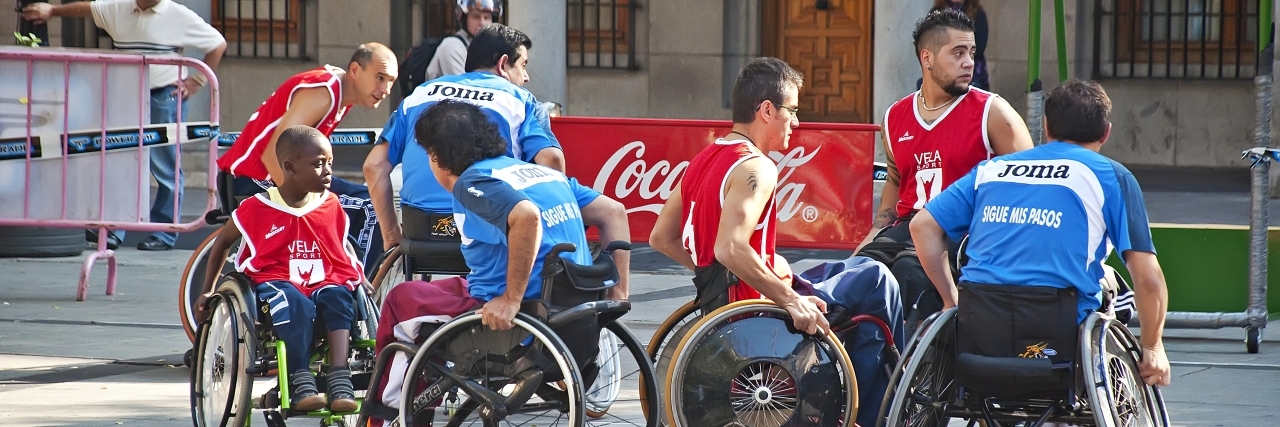In my rural Iowa county, basketball is king. Boys and girls alike spend their winters on the court, practicing with teammates for hours or participating in weekend tournaments in other cities. During the summer, most kids can be found refining their free throw skills or attending youth basketball camps. Young athletes look up to high school players and dream about putting on a jersey and representing their school on the hardwood when they grow up. If they’re lucky, they’ll even get a chance to watch their hometown team compete at the state tournament down in Des Moines. They practice diligently for years so they’ll have the opportunity to play in the Wells Fargo Arena against the best teams in the state.
However, not all kids have the opportunity to participate in traditional basketball leagues. Take my cousin Eli for example. In most ways, Eli is a typical seventh grader. He likes hanging out with his friends, playing games on his devices, and basketball. Eli also happens to use a wheelchair. He was born with spina bifida, a birth defect that occurs when the neural tube doesn’t close correctly. Because of his condition, Eli typically uses a cane or a wheelchair to get around. He could not participate in a traditional basketball league, and until a few years ago, he satisfied himself by being one of the water boys for his older brother’s team.
In 2011, Eli was first introduced to wheelchair basketball, and recently, his team placed fourth in the National Prep Tournament. He competes for a team based in Omaha, Nebraska, which is located about two-and-a-half hours away from our town. Eli has traveled to places as far away as Nashville, Tennessee for tournaments. I’m thankful he has a chance to participate in basketball, but I think it’s ridiculous that he has to drive up to 13 hours to get to his games.
The long hours of travel required to participate in wheelchair basketball deter a number of potential participants from joining the league. However, Eli has also had the opportunity to play other adaptive sports more locally. With the help of his parents and other members of the community, Eli started a sled hockey team in our hometown.
Adaptive sports leagues such as these are becoming increasingly more common, which is wonderful. I hope that someday, all kids like my cousin Eli will be able to participate in sports instead of just sitting on the sidelines.
Getty image by Changered.

